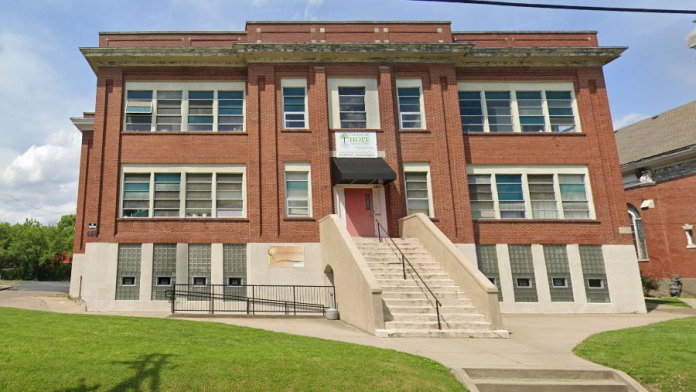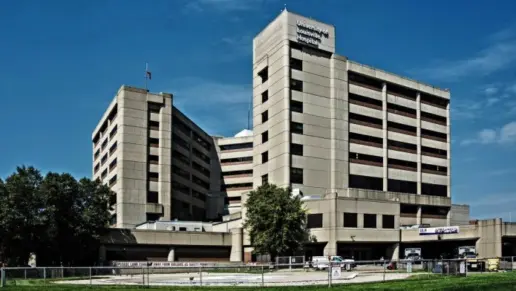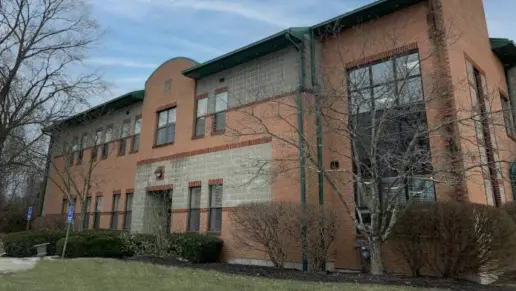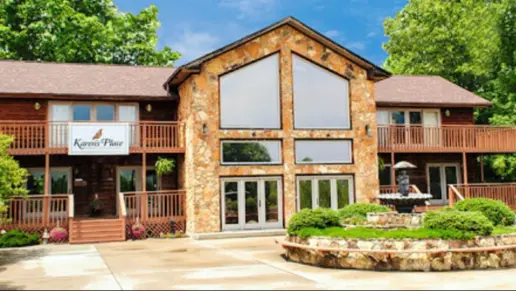I came to seek help after destroying a great part of my life. They took me in when I was broken and helped me heal old wounds that were the cause of my current issues. Thank God they were there to help me!
About Corner of Hope
Corner of Hope is part of the Lord’s Kitchen network. This is a faith-based center for substance misuse. They’ve been around since 1998. You’ll find them located in suburban Louisville, Kentucky, and recreational sites, like Algonquin Park, aren’t too far away. They provide gender-specific care for men 18 and older who’re experiencing drug, alcohol, or co-occurring mental health issues.
Corner of Hope offers treatment for prescription medications, alcohol, and opiates. They have emergency intake services and welcome new guests. The team wants to help you with sobriety and achieving a healthy and happy life. You’ll get treatment that is personalized with relapse prevention methods, education, and aftercare services.
They will determine the length of stay depending on your addiction severity, history, and the substances used, along with co-occurring issues that need to be addressed. They typically recommend at least three months of intense recovery support.
Corner of Hope is a Christian-based center where you’re encouraged to accept God’s methods for a healthy, sober life. They teach that no one is in control of their futures and there is no genuine change without God’s help. They’re next to the Church of Saint George, and there’s plenty of opportunities for fellowship.
They also offer housing assistance for displaced local veterans in the Louisville community. The Lord’s Kitchen ministries bring hope and change with crucial support services throughout the community, like food, clothing, and spiritual encouragement.
After completing recovery treatment, you can get involved to help others on the road to sobriety with necessary items that show them recovery is possible. They prepare emergency meals, available every day for free at their Standard Avenue location for those who need them.
They accept cash, credit ,or debit cards for payment and offer financial assistance for those who need help paying for treatment.
Rehab Score
Gallery

Location
Accepted Insurance
Other Forms of Payment
Medicaid is a state based program that helps lower-income individuals and families pay for healthcare. Medicaid covers addiction treatment so those enrolled can use their coverage to pay for rehab. When a program accepts Medicaid the client often pays very little or nothing out of their own pocket.
Private insurance refers to any kind of healthcare coverage that isn't from the state or federal government. This includes individual and family plans offered by an employer or purchased from the Insurance Marketplace. Every plan will have different requirements and out of pocket costs so be sure to get the full details before you start treatment.
Self-pay involves paying for treatment out of your own pocket. You can use savings or credit, get a personal loan, or receive help from family and friends to fund your treatment. If you don't have insurance or your insurance plan doesn't cover a specific program, self-pay can help ensure you still get the care you need.
Financial aid can take many forms. Centers may have grants or scholarships available to clients who meet eligibility requirements. Programs that receive SAMHSA grants may have financial aid available for those who need treatment as well. Grants and scholarships can help you pai for treatment without having to repay.
Medicare is a federal program that provides health insurance for those 65 and older. It also serves people under 65 with chronic and disabling health challenges. To use Medicare for addiction treatment you need to find a program that accepts Medicare and is in network with your plan. Out of pocket costs and preauthorization requirements vary, so always check with your provider.
Addiction Treatments
Levels of Care
Treatments
The goal of treatment for alcoholism is abstinence. Those with poor social support, poor motivation, or psychiatric disorders tend to relapse within a few years of treatment. For these people, success is measured by longer periods of abstinence, reduced use of alcohol, better health, and improved social functioning. Recovery and Maintenance are usually based on 12 step programs and AA meetings.
Drug rehab in Kentucky often starts with detox, then includes inpatient or outpatient treatment, and continues with aftercare support. Specific methods used during each of these phases varies, but often include individual and group counseling, medication, and recreational therapies.
Many of those suffering from addiction also suffer from mental or emotional illnesses like schizophrenia, bipolar disorder, depression, or anxiety disorders. Rehab and other substance abuse facilities treating those with a dual diagnosis or co-occurring disorder administer psychiatric treatment to address the person's mental health issue in addition to drug and alcohol rehabilitation.
Opioid rehabs specialize in supporting those recovering from opioid addiction. They treat those suffering from addiction to illegal opioids like heroin, as well as prescription drugs like oxycodone. These centers typically combine both physical as well as mental and emotional support to help stop addiction. Physical support often includes medical detox and subsequent medical support (including medication), and mental support includes in-depth therapy to address the underlying causes of addiction.
Substance rehabs focus on helping individuals recover from substance abuse, including alcohol and drug addiction (both illegal and prescription drugs). They often include the opportunity to engage in both individual as well as group therapy.
Programs


Clinical Services
Group therapy is any therapeutic work that happens in a group (not one-on-one). There are a number of different group therapy modalities, including support groups, experiential therapy, psycho-education, and more. Group therapy involves treatment as well as processing interaction between group members.
Trauma therapy addresses traumatic incidents from a client's past that are likely affecting their present-day experience. Trauma is often one of the primary triggers and potential causes of addiction, and can stem from child sexual abuse, domestic violence, having a parent with a mental illness, losing one or both parents at a young age, teenage or adult sexual assault, or any number of other factors. The purpose of trauma therapy is to allow a patient to process trauma and move through and past it, with the help of trained and compassionate mental health professionals.
Staff

Executive Director

Corporate Sponsorship Ambassador
Contact Information
1811 standard Avenue
Louisville, KY 40210







